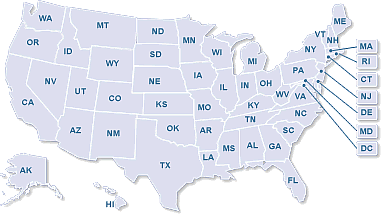Washington foreclosures can be either judicial or non-judicial. Judicial foreclosures occur when a mortgage lacks a Power of Sale clause allowing the lender to pursue a foreclosure in the event of default without the supervision of the court. The lender files a suit against the homeowner and the court rules on whether to foreclose or not. For in-state property owners, the court rules within 30 days. Out of state homeowners are allowed 60 days. If the court rules against the homeowner, a sale is scheduled for six to eight weeks in the future.
To begin a non-judicial foreclosure, the lender mails a Notice of Default to the homeowner informing them of the debt owed and the impending foreclosure. If the homeowner still does not provide payment within 30 days, the lender can schedule a foreclosure sale. In either case, the homeowner can stop the foreclosure by providing the default payment to the lender at any point before the sale occurs.
To advertise properly, a Notice of Sale must be recorded with the county register 90 days before the sale occurs. The homeowner is to receive the Notice with the same warning. It must also appear twice in a local newspaper, the first publication appearing between the 32nd and 28th day before the sale and the second between the 11th and the 7th day before the sale.
At the sale, a lender of the trustee or court clerk auctions off the property to the highest bidder. The winning bidder may take possession of the property twenty days after providing payment of his bid. There are no rights to redemption for non-judicial foreclosures.
Judicial foreclosures allow the homeowner one full year to redeem ownership by providing the full loan amount plus interest. During this time they may remain on their property.



 Versión en Español
Versión en Español 

Social Bookmarks